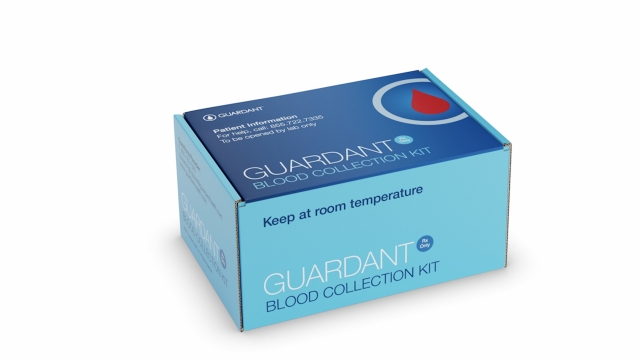A new blood-based test for colorectal cancer currently up for FDA review could mean cheaper and less invasive screenings for the disease.
Doctors and advocates have been waiting for years for a new blood-based DNA test for colon cancer. Promising results released by the New England Journal of Medicine show the promise of a cell-free DNA test from Silicon Valley company Guardant Health, called Shield.
In a study of more than 7,800 colon cancer patients, the new test from Guardant Health was able to detect the cancer with 83% sensitivity.
“The idea of a blood-based test is something they’re used to having done. And that can be done as part of their routine medical care, I think that will encourage more people to be screened, which I think is good news,” said Dr. William L. Dahut, chief scientific officer of the American Cancer Society.
The hope is for a colon cancer blood test sensitive enough to meet requirements for Medicare, Medicaid and private insurers to cover. It comes as more colorectal surgeons say they are caring for younger patients, even in their 20s and 30s.
Khalil Smith was 19 years old when doctors told him he had Stage 4 colon cancer — with no family history.
“I wasn’t familiar with the different stages. I wasn’t really even too familiar with cancer, to be honest,” said Smith.
SEE MORE: Microplastics in human placentas raise fetal, maternal health concerns
Colon cancer is the leading cause of cancer deaths in men and the second-leading cause of cancer deaths in women under the age of 50.
Stacey Mauzey was diagnosed with Stage 3 rectal cancer in 2019 at age 32, while 29 weeks pregnant with her daughter.
“My major symptom was rectal bleeding. And I started experiencing that a couple of years before I was diagnosed. I had talked to a few doctors about it, and it was just kind of passed off as, ’Oh, don’t worry about it. It’s most likely hemorrhoids,’” said Mauzey.
Colonoscopy screenings are the recommendation for those aged 45 and up. In a colonoscopy, a patient is sedated while a camera is used to show the inside of their rectum and large intestines. If a doctor finds a growth or polyp they can remove it before it becomes cancerous. There are also at-home tests where patients mail in their own stool sample.
“There can be some false positives. And in some cases, patients may not want the experience, providing a specimen in a box,” said Dr. Cedrek McFadden, a colorectal surgeon.
The blood tests come with caveats: Guardant’s test only caught 13% of polyps, much less than current stool and colonoscopy screenings.
“Over 50 million eligible Americans do not get recommended screenings for colorectal cancer, partly because current screening methods are inconvenient or unpleasant,” said AmirAli Talasaz, Guardant Health co-CEO in a press release.
As for Khalil Smith, he’s made it through more than a dozen surgeries, chemotherapy, immunotherapy and getting CT scans every 3 months.
“It’s really an uneasy feeling because you can never really tell what’s going on inside your body until you get those results.”
He’s now graduated college, and started a clothing company to raise cancer awareness, especially for preventative screenings.
“No matter who you are or how good you’re feeling, it’s always good just to get checked, just to make sure,” said Smith.
Trending stories at Scrippsnews.com




